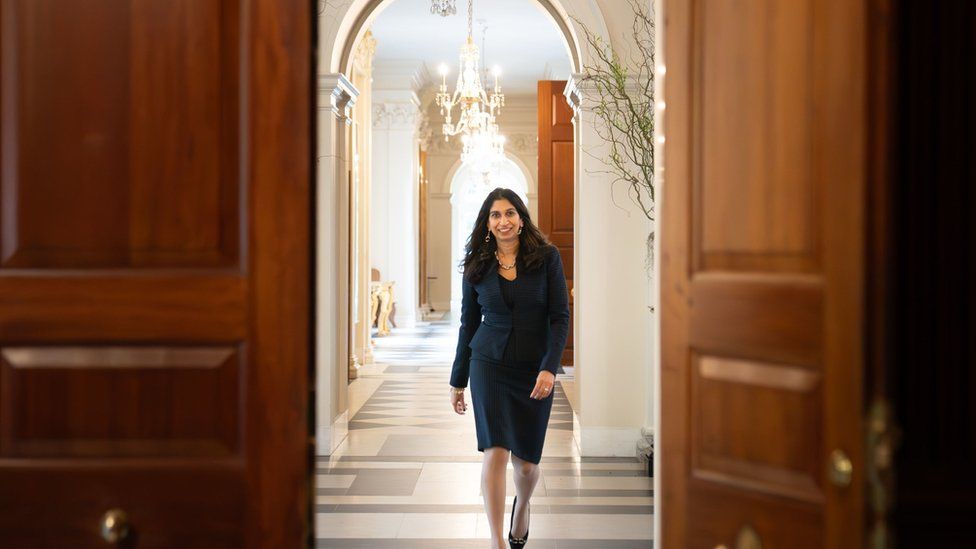ARTICLE AD BOX
 Image source, PA Media
Image source, PA Media
Suella Braverman arrives at the British ambassador's residence in Washington DC
By Kate Whannel
Political reporter
Politicians need to question if the UN's 1951 Refugee Convention is "fit for our modern age", Suella Braverman is expected to say in a speech.
Addressing a think tank in Washington DC, the home secretary will describe the convention as an "incredible achievement of its age".
But she will also argue that shifts in interpretation has led to increased numbers being defined as refugees.
Labour accused her of having "given up on fixing" the asylum system.
"Now she's resorting to grandstanding abroad and looking for anyone else to blame," said shadow home secretary Yvette Cooper.
The Refugee Convention was drawn up following World War Two, and has at its centre the principle that refugees should not be returned to countries where they face threats to their life or freedom.
The home secretary will tell an audience at the American Enterprise Institute that it is 70 years since the convention was agreed and "we now live in a completely different time."
"Let me be clear, there are vast swathes of the world where it is extremely difficult to be gay, or to be a woman. Where individuals are being persecuted, it is right that we offer sanctuary.
"But we will not be able to sustain an asylum system if in effect, simply being gay, or a woman, and fearful of discrimination in your country of origin is sufficient to qualify for protection.
"The status quo, where people are able to travel through multiple safe countries, and even reside in safe countries for years, while they pick their preferred destination to claim asylum, is absurd and unsustainable."
What is the Refugee Convention?
- The Convention was drawn up in 1951 and came into force three years later, during an era where millions were displaced across Europe after World War Two
- It was originally drafted to focus specifically on Europe's post-war refugees - but a 1967 amendment removed the geographic and time limits included in the original text and made the Convention universal
- The Convention provides an agreed definition of a refugee, establishes basic minimum standards for their treatment, and says that refugees should not be penalised for breaching immigration rules while fleeing
- Its core principle is "non-refoulement" - which means refugees should not be returned or expelled from a country against their will if they fear for their life or freedom
- Almost 150 countries have signed up to the Convention and it is considered a cornerstone of the international asylum system
The home secretary's speech comes as the government prepares for a Supreme Court hearing on whether its plan for tackling small boat crossings is legal.
The government wants to send those who come into the UK illegally to Rwanda or a third country - however the scheme has been blocked by legal challenges.
The United Nations High Commissioner for Refugees (UNHCR) has strongly criticised the plan arguing it would "deny protection" to genuine refugees and was a "clear breach" of the Refugee Convention.
Responding to Ms Braverman's speech, the Refugee Council charity said the UK should be "addressing the real issues in the asylum system, such as the record backlog, and providing safe routes for those in need of protection" rather than tearing up agreements.
However, Alp Mehmet from the Migration Watch UK campaign group said the home secretary was right to "call out the conventions" and said the UK should withdraw from the Refugee Convention if reforms were not made.
Barrister and campaigner for refugee rights Colin Yeo told the BBC: "It took decades for various countries to sign up to the convention - negotiating a replacement with international buy-in just isn't going to happen."

 1 year ago
20
1 year ago
20








 English (US)
English (US)